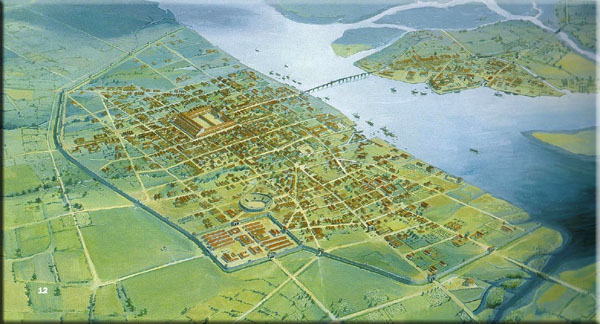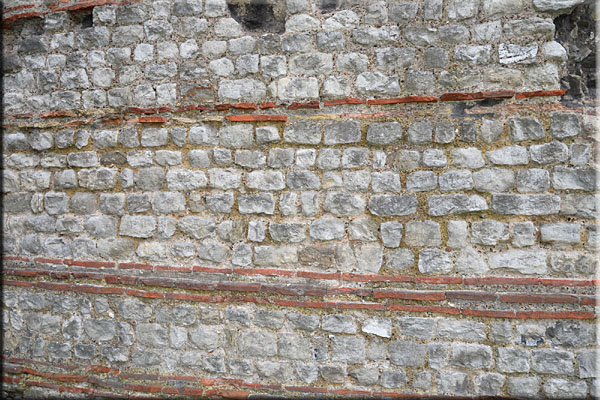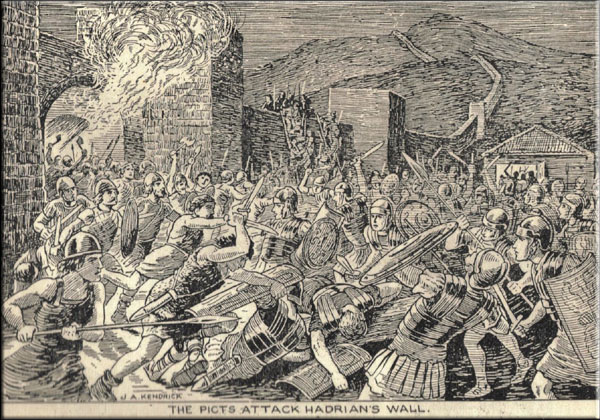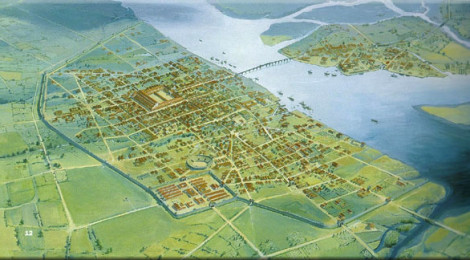
The Roman Wall Around Ancient London
Although Julius Caesar first invaded Britain in 55 BC, it wasn’t until 43 AD, under Emperor Claudius, that Romans began occupying present-day England. They stayed for nearly four centuries. One Roman settlement was along the swampy northern shoreline of the tidal Thames River. Now called London, the original walled Roman settlement was known as Londinium. Click any image to enlarge.
Remnants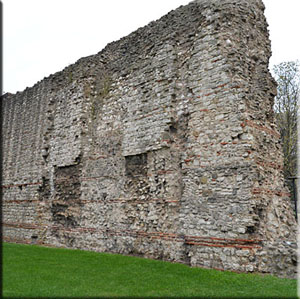
All that remain above ground of the nearly 400-year occupation are a few remnants of the defensive stone wall that surrounded Londinium. The largest remnants can be seen near the Tower of London, which was built over 1000 years later, in the 12th century.
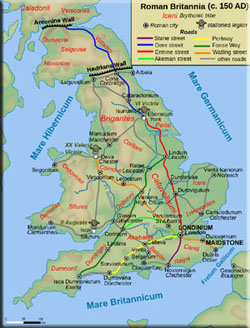 No Nearby Stone
No Nearby Stone
The valley of the Thames River is filled with gravel, sand and mud – nothing that could be used to build a defensive stone wall. Consequently, to build the wall, the Romans brought in Kentish Ragstone, which was quarried about 50 miles southeast of London near Maidstone.
Click image to enlarge.
Kentish Ragstone
Kentish Ragstone is a dense, hard, durable limestone that was deposited in a shallow Cretaceous sea which covered this part of England 110-115 million years ago. Southeastern England lacks much for hard stone; consequently Kentish Ragstone was used extensively in Roman and Medievel times for abbeys and castles, including the Tower of London.
Roman Masonry 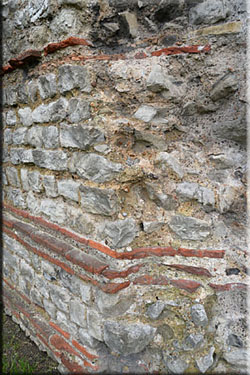
The inside of the wall consists of a mortared mixture of ragstone waste, along with coarse sand and whatever else had been ox-carted to the site. It is clear from the broken end of the wall that the clay tiles were not just decoratively placed on the outside, but were laid though the width of the wall.
Londinium Abandoned
Around 410 AD, with the entire Western Roman Empire in disarray, Londinium was abandoned to the Picts and Celts that had long inhabited the British Isles. After the Romans left, the area of Londinium doesn’t appear to have been occupied for at least another 200 years.
